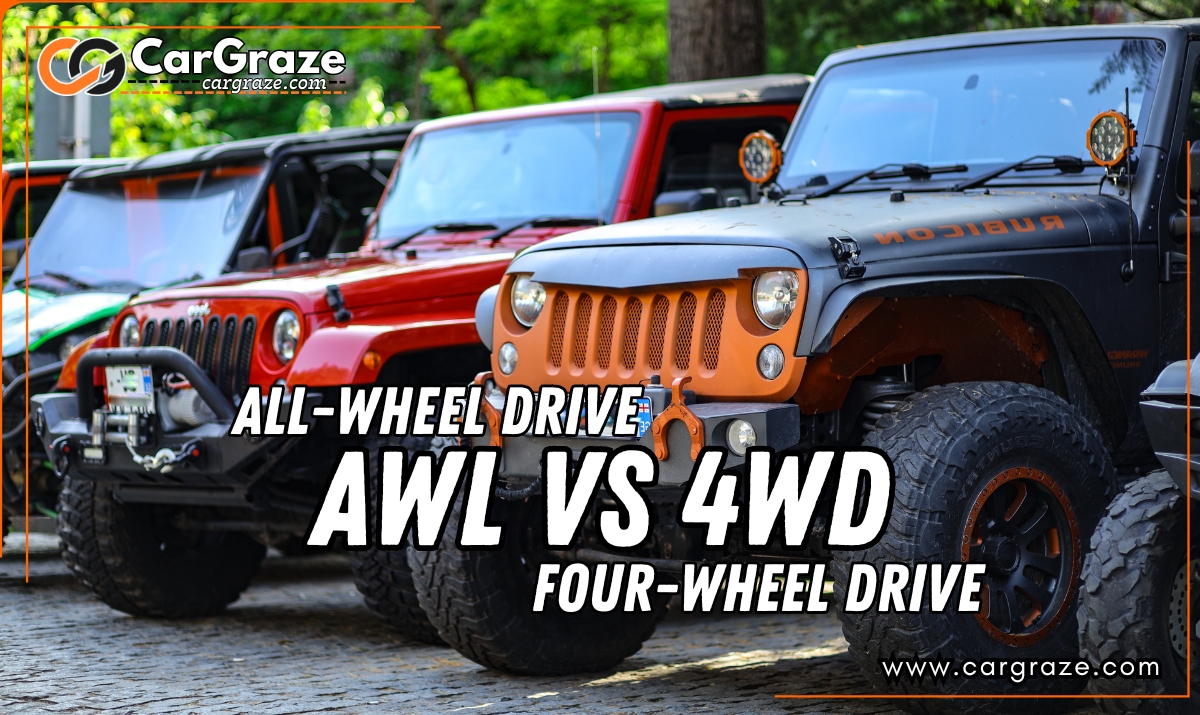
AWD vs. 4WD: What's the Difference, and Which is Right for You?
When you buy a vehicle, especially an SUV or truck, you’re likely to come across terms like AWD (All-Wheel Drive) and 4WD (Four-Wheel Drive). While both systems improve traction, they're not the same and serve different driving needs. In this article, we'll break down the differences between AWD and 4WD and help you decide which one is best suited to your driving lifestyle.
What is AWD (All-Wheel Drive)?
AWD, or All-Wheel Drive, is a system that automatically distributes power to all four wheels of your vehicle. Unlike 4WD, which is usually a part-time system, AWD is always active. AWD-equipped vehicles often use sensors and computer-controlled clutches to monitor and adjust which wheels receive the most power based on current road conditions.
AWD is ideal for:
- Everyday driving: It offers good traction on paved roads, especially in wet or slippery conditions.
- Light off-roading: AWD handles dirt roads and gravel but isn’t designed for rugged terrain.
- Winter weather: If you live in an area with moderate snow, AWD can provide peace of mind with enhanced grip and stability.
Pros of AWD:
- Automatic adjustment: AWD systems adapt instantly to changing road conditions.
- Low maintenance: Compared to 4WD, AWD typically requires less maintenance.
- Better fuel efficiency: AWD vehicles are often more fuel-efficient than 4WD vehicles.
Cons of AWD:
- Less robust for off-roading: AWD doesn’t provide the same rugged capability as 4WD in challenging terrain.
- Can be more expensive: AWD-equipped vehicles can come at a premium compared to their front- or rear-wheel-drive counterparts.
What is 4WD (Four-Wheel Drive)?
4WD, or Four-Wheel Drive, is designed for vehicles that need more power and capability in off-road situations. Unlike AWD, 4WD systems are usually part-time, allowing drivers to switch between 2WD and 4WD modes. With 4WD, power is evenly distributed between the front and rear axles, which enhances traction in challenging conditions.
4WD is ideal for:
- Off-road adventures: If you plan on tackling rugged trails, mud, sand, or rocky terrain, 4WD is your go-to.
- Heavy snow or ice: For extreme winter conditions, 4WD offers superior control.
- Towing and hauling: 4WD vehicles, especially trucks, can handle heavy loads and steep inclines with ease.
Pros of 4WD:
- Enhanced off-road capability: 4WD provides maximum traction and control in tough terrain.
- Driver control: Most 4WD systems allow you to choose when to engage the extra power, giving you flexibility based on the situation.
- Ideal for extreme weather: 4WD offers more stability in harsh conditions, making it popular in mountainous or rural areas.
Cons of 4WD:
- Higher fuel consumption: 4WD systems are heavier, reducing fuel efficiency.
- Increased maintenance: With extra components, 4WD can lead to higher maintenance costs.
- Not always necessary for city driving: 4WD is often overkill for drivers who stick to urban or suburban roads.
AWD vs. 4WD: Key Differences
- Functionality: AWD is designed for consistent traction on a variety of surfaces, while 4WD is engineered for rough, uneven terrain and challenging conditions.
- Engagement: AWD is always on, adjusting automatically. 4WD can usually be manually engaged when needed.
- Fuel Efficiency: AWD vehicles generally offer better fuel economy than their 4WD counterparts.
- Maintenance and Costs: AWD requires less maintenance and tends to be more affordable, while 4WD can be costly and complex to maintain due to additional components.
- Driving Scenarios: AWD is perfect for daily driving and light off-road situations. 4WD is best for heavy-duty off-roading, snow, mud, and challenging weather conditions.
Which Should You Choose?
- Choose AWD if you’re primarily using your vehicle on city streets and highways, live in an area with mild to moderate winters, or plan on light off-roading. AWD is perfect for drivers who want a balance between daily practicality and a bit of extra grip.
- Choose 4WD if you’re an adventure-seeker, frequently off-road, or live in a rural area where conditions get extreme. 4WD is great for those who need maximum capability in unpredictable environments.
Final Thoughts
Both AWD and 4WD systems offer fantastic benefits, but their differences make them suited for different purposes. Whether you're navigating city streets, winding mountain roads, or rugged trails, understanding these distinctions can help you make an informed decision.
With the right choice between AWD and 4WD, you'll enjoy a safer, more enjoyable driving experience tailored to your lifestyle and needs.



Comments